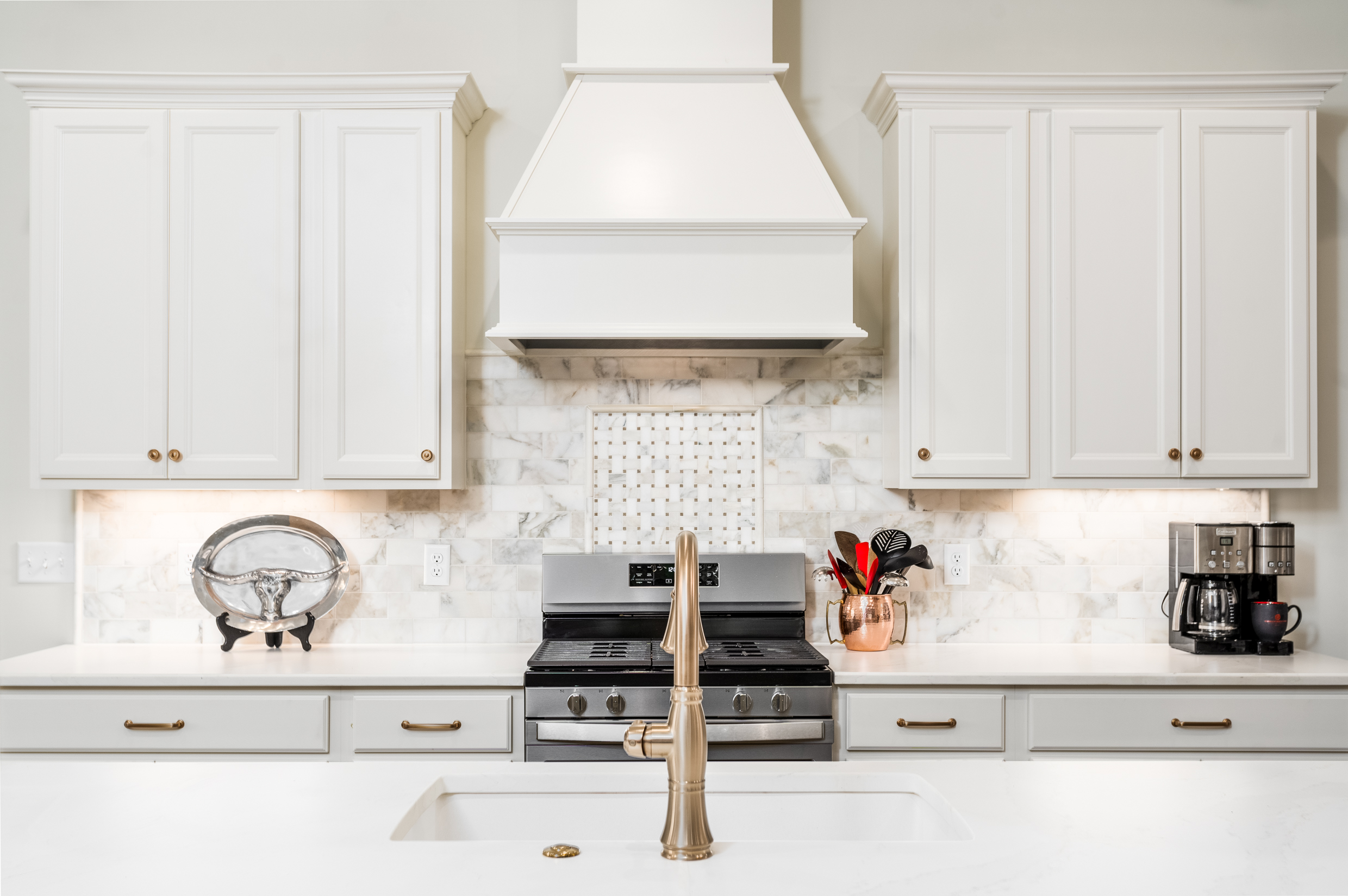Rising Interest Rates: Why it’s Still a Good Time to Buy a Home


In today’s dynamic economic landscape, rising interest rates can make potential homebuyers feel apprehensive about taking the plunge into homeownership. However, despite these concerns, there are compelling reasons why it’s still a good time to buy a home. In this blog post, we will explore the factors that make homeownership an attractive prospect, even in the face of increasing interest rates.
- Locking in a Lower Interest Rate: One of the primary advantages of buying a home amidst rising interest rates is the opportunity to secure a mortgage at a relatively low rate. Although rates may be increasing, they are still historically low. By purchasing a home now, you can capitalize on these favorable rates and potentially save a significant amount of money in interest payments over the life of your loan.

- Building Equity: Owning a home allows you to build equity over time, which can be a valuable long-term investment. With each mortgage payment, you increase your ownership stake in the property. Real estate has demonstrated a tendency to appreciate in value over the years, making homeownership an effective way to accumulate wealth. By entering the market sooner, you can start building equity earlier and potentially reap greater financial benefits in the future.
- Housing Market Stability: While interest rates may be rising, the housing market can still exhibit stability or even modest growth. Factors such as low unemployment rates, strong demand, and limited housing supply contribute to a resilient market. These conditions can provide confidence to prospective buyers that their investment will hold or appreciate in value over time. By purchasing a home in a stable market, you position yourself to benefit from potential future appreciation.
- Potential Tax Benefits: Homeownership often brings various tax advantages that can further enhance its financial appeal. Mortgage interest and property tax payments may be tax-deductible, reducing your overall tax liability. Although the specifics vary based on individual circumstances and local tax laws, exploring potential tax benefits can significantly impact the affordability of homeownership and contribute to long-term savings.
- Personal Fulfillment and Stability: Beyond financial considerations, owning a home provides a sense of stability, security, and pride of ownership. You have the freedom to customize your living space, create a sanctuary that reflects your personal style, and make lasting memories. Homeownership eliminates the uncertainties associated with rental properties, such as fluctuating rents and the whims of landlords. Additionally, it fosters a sense of community and belonging as you become part of a neighborhood and establish roots.

Despite the current trend of rising interest rates, the advantages of homeownership persist. Securing a mortgage at a relatively low interest rate, building equity, benefiting from a stable housing market, and potentially enjoying tax advantages are all compelling reasons to consider buying a home. Moreover, the personal fulfillment and stability that come with homeownership add immeasurable value to the equation. It is essential, however, to carefully evaluate your personal financial situation and long-term plans before making a decision. Consulting with professionals in the real estate and financial industries can provide tailored advice and insights to guide you through the process. Remember, with careful consideration and proper planning, you can navigate the housing market successfully and take advantage of the many benefits of homeownership.
Unlocking Your Dream Home: How to Determine What You Can Afford

Are you ready to embark on the exciting journey of homeownership? Perhaps you’ve been daydreaming about that cozy cottage, a spacious family home, or a modern condo in the city. The good news is that owning a home is not just a dream; it’s an achievable goal. But the key to a successful and stress-free homebuying experience lies in understanding how much you can afford.
Here’s the encouraging truth: with the right tools and knowledge, you can confidently step into the world of real estate and find a home that fits your budget and your dreams.

1. Assess Your Income: Your income is the foundation of your homebuying journey. It’s your ticket to turning those dreams into reality. Calculate your annual income, including any co-borrower’s income, and make sure to use your gross income for a more accurate picture.
2. Crunch the Numbers: The down payment is your initial investment, and it can significantly impact your monthly payments. A larger down payment reduces your loan amount, giving you more room to work with in your budget. It’s like planting the seed for your future home.
3. Location Matters: Just as every dream home has a unique address, location plays a crucial role in affordability. The cost of homes varies from place to place, so explore different neighborhoods to find the one that aligns with your budget and lifestyle.
4. Manage Your Debts: Lenders look at your Debt-to-Income Ratio (DTI), which includes existing debts like credit card payments, car loans, and student loans. Keeping your DTI within a certain threshold (usually around 43% to 50% of your gross income) is key to securing a mortgage[1].
5. Embrace the Power of Interest Rates: Interest rates can work in your favor, making a larger home more affordable. Keep an eye on market rates and consider how they’ll affect your monthly payments.
6. Choose the Right Mortgage: The type of mortgage you choose can also impact your affordability. FHA, VA, and conventional loans each have their pros and cons. Mortgage companies also offer portfolio loans, so explore your options.

Now, the most crucial step is to put these pieces together. Fortunately, there are user-friendly home affordability calculators available online. Realtor.com, Forbes, Redfin, Trulia, and Money Under 30 offer reliable tools to help you determine your affordable home price.
Remember, homeownership is not just about finding a house; it’s about finding your place in the world, creating memories, and building a future. With the right financial foundation, you can unlock the door to your dream home. It’s time to take that first step towards homeownership and turn your dreams into a beautiful reality. Happy house hunting! 🏡✨
Fueling Connection, Community & Client Success

The Coldwell Banker Gen Blue experience has once again left us brimming with enthusiasm, excitement, and a renewed sense of purpose. We came, we saw, and we conquered Gen Blue 2023 in Atlanta, and it’s safe to say that this event was nothing short of transformative.

Connecting in Innovative Ways
Gen Blue 2023 was a whirlwind of learning and growth, as we explored innovative ways to stay connected in an ever-evolving real estate landscape. We delved into the world of cutting-edge technology, creative marketing, and advanced communication strategies. The emphasis was on not just embracing change but driving it forward with passion and purpose.
A Vibrant Community Like No Other
The sense of community at Gen Blue is unmatched. Being a part of the Coldwell Banker family is not just about business; it’s about building relationships that last a lifetime. Gen Blue was an exceptional opportunity to strengthen bonds with colleagues and make new connections with like-minded professionals from across the world.
From the moment we arrived in Atlanta, the energy was palpable. We shared stories, laughed, and even shed a few tears as we celebrated the wins, learned from the challenges, and forged deeper connections with our fellow attendees. Gen Blue isn’t just an event; it’s a family reunion, a gathering of like souls who are committed to making a difference in the world.
Learning from the Best to Serve Our Clients Better

Our industry’s finest minds came together at Gen Blue, sharing insights and strategies on how to elevate our client experiences. We were treated to powerful keynote speakers, intimate breakout sessions, and engaging workshops that were filled with actionable advice and wisdom. Our favorite speaker though, was Shaquille O’Neal. His energy and enthusiasm was contagious and left us all feeling like we could conquer the world!
We heard from real estate titans who emphasized the importance of empathy, understanding, and going the extra mile for our clients. In an age where convenience often trumps connection, these experts reminded us that the human touch is irreplaceable. Our clients aren’t just transactions; they are people with dreams, fears, and aspirations. Gen Blue inspired us to nurture those dreams and provide unparalleled service.
As Gen Blue came to a close, the sense of optimism was overwhelming. We left Atlanta with a renewed sense of purpose, a notebook full of ideas, and hearts full of gratitude. The path forward is clear, and 2024 is shaping up to be a year of unprecedented opportunity and success.
Looking Forward to an Amazing 2024
It wasn’t just a conference; it was a testament to the enduring spirit of the Coldwell Banker family. We are more than real estate agents; we are dream builders, relationship architects, and community leaders. The world is changing, and we are ready to embrace it with open arms and warm hearts.
Here’s to an incredible 2024, filled with innovation, community, and even more remarkable client experiences. Let’s continue to move forward together, hand in hand, and make dreams come true. Because that’s what Gen Blue and Coldwell Banker are all about.
Understanding Fixtures vs. Non-Fixtures in Real Estate: What Stays and What Goes

When you purchase a new home, it’s essential to understand the distinction between fixtures and non-fixtures. Fixtures are items that are considered part of the property and typically stay with the house when it changes ownership. Non-fixtures, on the other hand, are items that are not permanently attached and are not included in the sale. Let’s delve into examples of both to shed light on why these distinctions matter in real estate transactions.
Fixtures:
- Built-In Appliances: Built-in kitchen appliances such as ovens, dishwashers, and stovetops are considered fixtures. They are usually attached to the property and are expected to remain with the home when you buy it.
- Light Fixtures: Permanent light fixtures, like chandeliers and ceiling fans, are fixtures. They are typically installed and meant to be part of the property.
- Window Treatments: In many cases, blinds and curtains that are custom-fitted to windows may be considered fixtures and stay with the house. However, curtains and drapes are considered personal property and need to be negotiated in the contract if the buyer would like to keep them.
- Landscaping: Trees, shrubs, and plants that are part of the landscape design are fixtures. However, potted plants or removable garden decorations are not.



Non-Fixtures:
- Furniture and Personal Belongings: Items like sofas, dining tables, and personal belongings are non-fixtures. They are not permanently attached and do not come with the house.
- Portable Appliances: Appliances like a refrigerator, washer, dryer, or standalone microwave are non-fixtures and are typically not included in the sale unless specified otherwise.
- Rugs and Carpets: While wall-to-wall carpeting may be considered a fixture, area rugs are not. They can be easily removed and taken by the seller.
- Wall Art and Decorations: Paintings, mirrors, and wall decorations are non-fixtures. They are personal items and are not part of the property’s structure.



The reason behind these distinctions is to provide clarity in real estate transactions and avoid disputes between buyers and sellers. Fixtures are considered part of the property’s value, and buyers expect them to remain in place. Non-fixtures, on the other hand, are the seller’s personal property and are not included unless specifically negotiated.
It’s crucial to review the list of fixtures and non-fixtures in the purchase agreement to ensure that both parties are on the same page. If there are items that the buyer wishes to include or exclude, it should be clearly documented in the contract. Understanding these distinctions helps ensure a smooth transition when buying or selling a home and prevents any surprises along the way.

 Facebook
Facebook
 X
X
 Pinterest
Pinterest
 Copy Link
Copy Link











